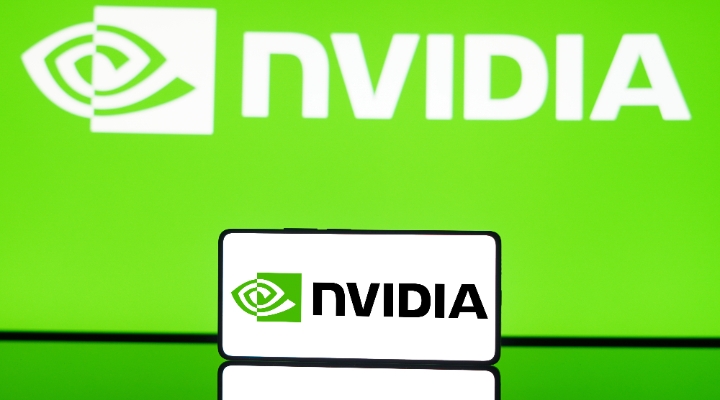James Gard: Welcome to Morningstar. With me today is Michael Field, and today, we're going to talk about three stocks that have been impacted by two significant elections in Europe.
Thanks for joining me today, Michael. So, we still have some uncertainty going on in France and the U.K. is more or less settled. But these stocks we're going to talk about, they're all – two potential winners from the elections and one is potentially being negatively impacted by France. So, should we kick off with France?
Michael Field: Yeah, indeed. So, the stock that we've highlighted from the French elections or that's thrown open as an opportunity by the French elections is BNP Paribas (BNP), the large domestic bank that we're all familiar with in some shape or form. So again, I think like this one has been hammered over the last while as concerns about a right wing government, one, what kind of policies they were going to bring in that might impact negatively banks as a whole and indeed BNP Paribas a result of that, and two, the more general risks to the economy if indeed the right wing government blew out the fiscal deficit to pay for a lot of social programs, what kind of effect that would have on French credit spreads and indeed, funding costs for the bank. So that's why the opportunity has presented itself.
Gard: Sure. I guess for the French banks, the worst-case scenario has been ruled out now. But there is still populist anger against the banks. I mean, that has led to, you would say, an unfair discount to BNP Paribas fair value.
Field: I think that's fair overall, yeah. Look, I think we have a left wing alliance in place now, which probably isn't what investors are really looking for either. But at the same time, given the alternatives, I think they're relatively okay with that. The danger I suppose is that we don't know exactly what kind of policies they're going to bring in place, or if indeed the social programs that they've talked about are going to require increasing the fiscal deficit in France materially as well. So, there's still dangers. It's not to say this is kind of a (gimme) now. But at the same time, we think the stock is trading at too large a discount. It's something like 25% to our fair value estimate, 40% below book. So, we think from that perspective, there's a bit too much discounted. And the final point on that is, yes, they're a large French bank; yes, they have retail operations in France, but it's only about a quarter of their overall business. So, from that perspective, they're pretty well diversified.
Gard: Yeah. So, I mean, if you set aside the uncertainty discount, the European banks are generally pretty well capitalized and BNP Paribas, no exception?
Field: I think that's fair. And that's one of the key things our banking team has been looking at really. Interest rates are falling across Europe. We've seen the first cut from the ECB. And now the questions have been asked, look, what kind of banks can maintain profitability over the next number of years in a falling interest rate environment, and BNP are one of those large, well capitalized banks that you mentioned that we think are actually up to that task.
Gard: Sure. Thanks for that. So, let's head to Germany now. We're going to look at a German utility, RWE (RWE). But you're looking at it from the perspective as a potential winner from the U.K. election.
Field: Indeed. Look, RWE, it's a German utility, but its exposure to the U.K. is quite vast. And one of the promises that Labour have made, kind of piggybacking on a Conservative policy, is the decarbonisation power grid. And they're looking to do that by 2030, which is a pretty ambitious target. Obviously, names like National Grid are going to be at the forefront of benefiting from this decarbonisation of the grid and the capital that will have to be invested as a result of that. But second derivative plays like RWE, which are trading at large discounts, currently it's a 5-Star stock, could also benefit massively from renewables power generation, which is essentially their bread and butter.
Gard: Sure. But for the utilities, these upgrades are going to cost a lot of money. Is that going to weigh on the balance sheet?
Field: So, I think, is it going to cost a lot of money? Of course. Can that be a good thing? Yes, because then they can earn pretty decent returns on any capital they're investing over the next number of years. And RWE as well is a good example of one of those utility companies that's not overburdened by debt currently. The net debt to EBITDA is less than 2 times currently. So, there's significant room for expansion there without getting into any kind of dangerous territory.
Gard: Sure. Yeah, we like low debt companies. So, I was listening to Rachel Reeves, the new Chancellor, yesterday, and she was talking about housebuilding. So that kind of moves us neatly on to Persimmon (PSN), I think, which is our last stock. That's one that's trading as undervalued according to Morningstar's screen. Do you want to tell us about why you like Persimmon as a potential beneficiary of top-down housing planning relaxation targets?
Field: Yeah. So, this is one of the more ambitious promises by the Labour government. And they have to be to some degree, right? This is why a lot of people went out and actually voted for Labour in the first place in these elections, that they don't have homes, and that's what they're looking for. That's the number one priority. So, Labour have said they're going to build 300,000 homes a year for the next five years, which is again, a really ambitious target. It's a level we haven't seen in the U.K. since the 1970s in terms of homebuilding. And who is going to be at the forefront to benefit from that? It's obviously the U.K. homebuilders, the big, listed guys like Persimmon, which is our top pick in the sector. The shares are kind of – it's still trading 40%, 50% below our fair value estimate currently. So, there's a lot of upside for stocks like this. And we're talking a good runway of growth if indeed Labour can come through on their promises.
Gard: Sure. Yeah. And you get the feeling that housing market sentiment has been battered by the high interest rate era, but we should start getting some interest rate cuts this year, maybe August. So that should be a decent tailwind, at least for sentiment, and mortgage affordability is a key issue as well, isn't it?
Field: Indeed. Look, that's one of the key drivers of that downward performance in this, its mortgage approvals, which have been pretty weak over the last number of years as a result of the high interest rates that you mentioned. But this is kind of the dual catalyst. You have a Labour government on the one hand that's saying they're going to start building houses at a pace not seen for quite a number of years. And on the other hand, you've the Bank of England, which are probably very likely to cut rates even next month, and then set that downward trend of rate cutting as well. So, a number of catalysts that could move the share price for a significantly discounted stock.
Gard: Sure. Thanks. And my final question really is, are housebuilders, are they a decent income play still? I know Persimmon reset its dividend a couple of years ago. It used to be a massive payer. But could it still be considered a sort of income and growth sort of stock?
Field: I think so, certainly from the income perspective, anyway. Look, you mentioned correctly, they did reset their dividend. But as I mentioned, the share price fell by two-thirds at one point. So, that was probably very much needed. The current dividend yield is north of 4%. So, puts it – by any means, that's a good income stock, I think.
Gard: Sure. Brilliant. Yeah. Well, thanks very much for your time, Michael. As always, I look forward to catching up next time we talk about more events. Earnings season maybe is on the horizon. So, it'd be a good time to start. So, thanks very much.






























